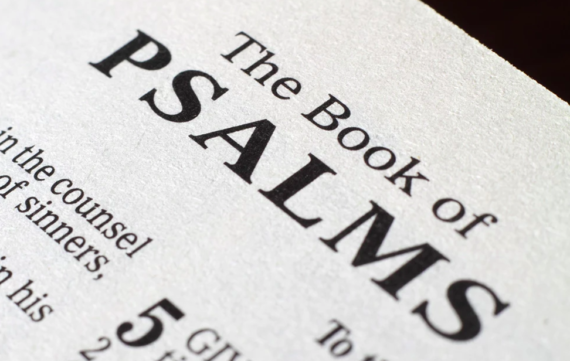The academic study of this psalm raises some interesting questions. But this article is intended to be practical rather than academic. So, we will bypass the academic questions and proceed to the practical lessons we might be able to learn from Psalm 3.
Fear and Discouragement
The first of these is that fear and discouragement will come to the believer. O Lord, how many are my foes! Many are rising against me; 2 many are saying of my soul, there is no salvation for him in God.
Enemies come in all shapes and sizes. Friends, relatives, even impersonal forces may work against us at times. If the heading is right, the occasion is a prime example of the possibilities — after all the mercy David showed to his son, Absalom, that son stirred up the nation to revolt. Even if the heading is mistaken, certainly David’s life was full of examples of trouble coming from all kinds of sources (Philistines, Saul, his own family, Joab).






Indeed, God “never promised us a rose garden.” When we agree to follow a crucified saviour, we ought to expect some inconvenience along the way. Fear, discouragement, and troubles of many kinds will come to the believer.
A Faith Review
When trouble comes, we must engage in a faith review. That is what we see happening here in verses 3-6. But you, O Lord, are a shield about me, my glory, and the lifter of my head. 4I cried aloud to the Lord, and he answered me from his holy hill.5I lay down and slept; I woke again, for the Lord sustained me. 6I will not be afraid of many thousands of people who have set themselves against me all around.
In one sense, we are to forget the things that are behind (Phil 3:13). Yet in another sense, memory serves an important spiritual function in our lives. We are frequently encouraged to remember. Forgetfulness of the wrong kind is harmful (Dt 4:9). We should strive to remind ourselves of what we believe and why we believe it.
There are several ways to do a faith review. Regular Bible reading is a critical part of this. We should also review our personal history to see how God has led us through difficulties in the past.
One of the best ways we can help others who are discouraged is to lead them in a faith review. Younger Christians may especially need help with this. The older ones have their own experiences of God’s care to fall back on. But the younger ones do not have this. They have an extra need for a knowledge of God’s care for his people down through history. Where such knowledge is lacking, it is no surprise that people fall away. While they may have been given sound and logical reasons for believing, in the midst of troubles and trials it is easy to forget those reasons and lose faith.
In God’s Hands
Then we must consciously lay the matter in God’s hands. This is how the psalm closes. “Arise, O Lord! Save me, O my God! For you strike all my enemies on the cheek; you break the teeth of the wicked. 8 Salvation belongs to the Lord; your blessing be on your people!
A faith review may help us gain perspective, but it is NOT going to make the problem go away! While there is often something we can and should do about our problems, we must avoid the temptation to take the burden on ourselves. The challenges we face must be laid before God.
We may even need to ask the Lord to defeat our enemies. We should not feel guilty about asking God to deal with an enemy. Yes, we should hope for their ultimate salvation (Lk 23:34; Acts 7:60). But the Bible’s sense of justice demands that unrepentant sin be punished. Not only are we allowed to ask that sin be punished, we are forbidden to ask that unrepentant sin be overlooked (John 5:16-17; Rev 6:10). Seeking to lead others to repentance is right, asking that unrepentant sin be condoned is asking that God no longer be just. We are commanded to “leave room for the vengeance of God” (Rom 12:19).
We have failed to leave room for God’s vengeance any time we take justice into our own hands. But any time we try to deny to God or his appointed servants the right to punish, we have equally left no room for his vengeance.
We must have faith that a wrong left in the hands of God will be corrected. He may lead the sinner to repentance. He may punish the sinner in this life. He may make a fool of the sinner (Rom 1). Or he may leave the ultimate reckoning until the last day. But it will be dealt with at some point in time or in eternity.
There is no need for us to fuss and fret. There is no call for us to take justice into our own hands — to form vigilante groups, death squads or engage in character assassination via social media. We must leave these things in the hands of God.
Psalm 3 gives us an excellent pattern for dealing with life’s difficulties. We should expect trouble. It should never surprise us. When it comes, we must review our reasons for faith. Then, we must put the matter in God’s hands, and leave it there.

